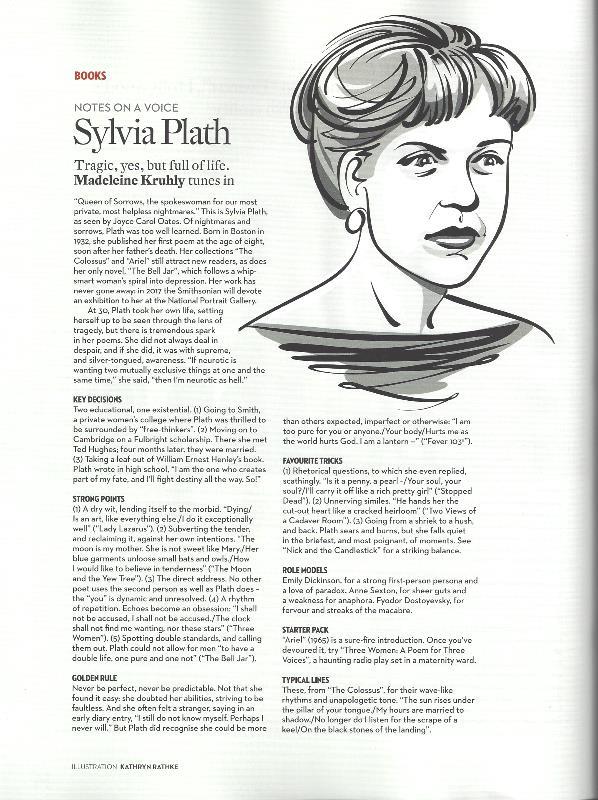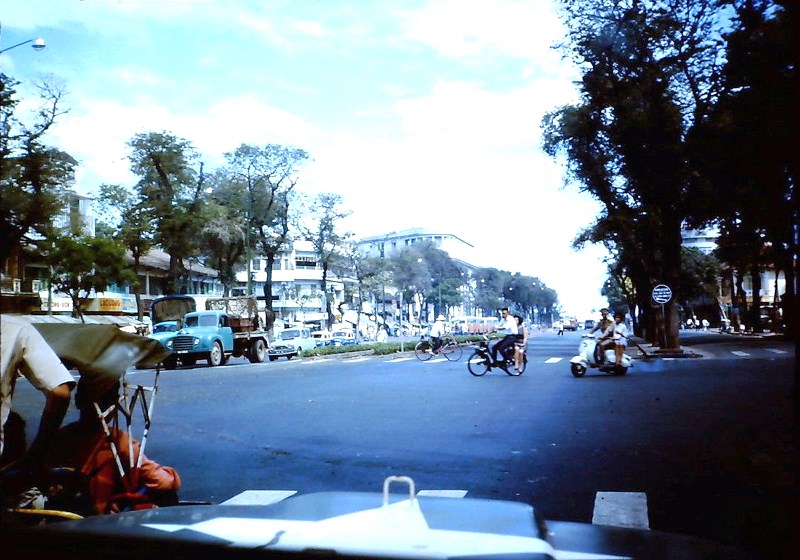Dịch thuật | Dịch ngắn | Đọc sách | Độc giả sáng tác | Giới thiệu | Góc Sài gòn | Góc Hà nội | Góc Thảo Trường
Thư tín | Phỏng vấn | Phỏng vấn dởm | Phỏng vấn ngắn
Giai thoại | Potin | Linh tinh | Thống kê | Viết ngắn | Tiểu thuyết | Lướt Tin Văn Cũ | Kỷ niệm | Thời Sự Hình | Gọi Người Đã Chết
Ghi chú trong ngày | Thơ Mỗi Ngày | Nhật Ký | Chân Dung | Jennifer Video

Viết
Cali,
No-20121 2 3 4 5 6 7 8 9 10 11 12 14 15 16 17 18 19 20 21 22 23 24 25 26 27 28 29 30 31 32 33 34 35 36 37 38 39 Bobin Ghiền TTT in Ký Ức Sơ Sài Rain Paris Review 60 năm Sổ Đọc Thảm họa dịch Nostalgie de la boue Ám ảnh phố phường Câu hỏi hắc búa Viết lại Truyện Kiều Thơ vô ngôn Hope in thin shell Nhìn lại TLVD Mit Crisis Borges by Greene NQT @ talawas Tiểu thuyết là gì? 1968-Khe Sanh Sarajevo Siege 1992 Paris tắm Mit Critic Ghiền Cô Gái Chơi Cờ Pamuk: Cơn giận dữ của những kẻ bị trầm luân Viết nhỏ by PTH Anh Môn by The Economist Cavafy by Vargas Llosa Opium-Marx 20 năm VH Miền Nam Granta Sex The Good vs The Chtistian Iceberg Gatsby Simic: What if PCT triết gia Season Elegy Truyện ngắn bất khả NHT by Nhật Tuấn Steps Lost_Intel Chia tay Youth Fleeing by Cao Hành Kiện Loneliness by CHK To Young Poets by AZ NHQ và HTXHCN Bolano: Trong Ngoặc Borges's Còm Hà Nội Gió Tạp Chí ST by CTC Graham Greene Dangerous Edge Đọc lại Agatha Christie Message to 21th Century Memory Trap How to write a sentence Bùi Ngọc Tuấn Ôi chao giọng Huế Lapham Kẻ Lạ Inner Worlds LMH case Bịp Lolita loathsome brillance Kafka Poet Once upon a sea Images Life by Simic Borges by Cioran Centaur Question by P_Levi Ars Erotica
|
Last Page

9.8.2015 
Richie & Nicolas 
Hãy nhận chúng tôi! SN-GCC, 2015 
Hộp thư Văn Học số 143, Tháng Ba 1998. Tks. NQT Vậy mà GCC cứ nghĩ, cái từ "thần sầu" là do GCC phịa ra để tự xoa đầu mình. Thần sầu chính trị văn chương! Thơ Mỗi Ngày 
BOOKS
NXH's Poems of the
NightNOTES ON A VOICE Sylvia Plath Tragic, yes, but full of life. Madeleine Kruhly tunes in "Queen of Sorrows, the spokeswoman for our most private, most helpless nightmares." This is Sylvia Plath, as seen by Joyce Carol Oates. Of nightmares and sorrows, Plath was too well learned. Born in Boston in 1932, she published her first poem at the age of eight, soon after her father's death. Her collections 'The Colossus" and "Ariel" still attract new readers, as does her only novel, "The Bell Jar", which follows a whip- smart woman's spiral into depression. Her work has never gone away: in 2017 the Smithsonian will devote an exhibition to her at the National Portrait Gallery. At 30, Plath took her own life, setting herself up to be seen through the lens of tragedy, but there is tremendous spark in her poems. She did not always deal in despair, and if she did, it was with supreme, and silver-tongued, awareness. "If neurotic is wanting two mutually exclusive things at one and the same time," she said, "then I'm neurotic as hell." KEY DECISIONS Two educational, one existential. (1) Going to Smith, a private women's college where Plath was thrilled to be surrounded by "free-thinkers". (2) Moving on to Cambridge on a Fulbright scholarship. There she met Ted Hughes; four months later, they were married. (3) Taking a leaf out of William Ernest Henley's book. Plath wrote in high school, "I am the one who creates part of my fate, and I'll fight destiny all the way. So!" STRONG POINTS (1) A dry wit, lending itself to the morbid. "Dying/ Is an art, like everything else./I do it exceptionally well" ("Lady Lazarus"). (2) Subverting the tender, and reclaiming it, against her own intentions. "The moon is my mother. She is not sweet like Mary./Her blue garments unloose small bats and owls./How I would like to believe in tenderness" ("The Moon and the Yew Tree"). (3) The direct address. No other poet uses the second person as well as Plath does - the "you" is dynamic and unresolved. (4) A rhythm of repetition. Echoes become an obsession: "I shall not be accused, I shall not be accused./The clock shall not find me wanting, nor these stars" ("Three Women"). (5) Spotting double standards, and calling them out. Plath could not allow for men "to have a double life, one pure and one not" ("The Bell Jar"). GOLDEN RULE Never be perfect, never be predictable. Not that she found it easy: she doubted her abilities, striving to be faultless. And she often felt a stranger, saying in an early diary entry, "I still do not know myself. Perhaps I never will." But Plath did recognize she could be more than others expected, imperfect or otherwise: "I am too pure for you or anyone./Your body/Hurts me as the world hurts God. I am a lantern -" ("Fever 103"). FAVOURITE TRICKS (1) Rhetorical questions, to which she even replied, scathingly. "Is it a penny, a pearl-/Your soul, your soul? /1'11 carry it off like a rich pretty girl" ("Stopped Dead"). (2) Unnerving similes. "He hands her the cut-out heart like a cracked heirloom" ("Two Views of a Cadaver Room"). (3) Going from a shriek to a hush, and back. Plath sears and burns, but she falls quiet in the briefest, and most poignant, of moments. See "Nick and the Candlestick" for a striking balance. ROLE MODELS Emily Dickinson, for a strong first-person persona and a love of paradox. Anne Sexton, for sheer guts and a weakness for anaphora. Fyodor Dostoyevsky, for fervour and streaks of the macabre. STARTER PACK "Ariel" (1965) is a sure-fire introduction. Once you've devoured it, try "Three Women: A Poem for Three Voices", a haunting radio play set in a maternity ward. TYPICAL LINES These, from "The Colossus", for their wave-like rhythms and unapologetic tone. "The sun rises under the pillar of your tongue./My hours are married to shadow./No longer do I listen for the scrape of a keel/On the black stones of the landing". Mỗi đàn bà lấy một tay phát xít. [Chaque femme épouse un fasciste]. Sylvia Plath: Chuông Tuyệt Vọng [Cloche de détresse. Nhà xb Denoel]. "Pauvre Sylvia Plath", nàng Sylvia Plath đáng thương, bài viết trên tờ Lire, số tháng 11, 2004, mở đầu. Sylvia Plath [1932-1963]: Một thứ Virginia Woolf của thập niên 1960, và cũng tự huỷ mình như Woolf, nhưng chán đời theo một kiểu hoang dại, sauvage, hơn nhiều. Ngôi sao băng trên nền trời thi ca Mẽo, tuy thoáng hiện rồi mất tích, nhưng để lại dấu ấn trên rất nhiều nhà văn, rất ư là khác biệt trong số họ, như: Adrienne Rich, Erica Jong, hay Philip Roth. Tên miền của bà [Son territoire]: Sự tự thú [la confession]. Khí giới của bà: Sự hung bạo bất thần [la violence pulsionnelle] Chuông Tuyệt Vọng: Một thứ tiểu thuyết nửa nhật ký riêng tư, nửa giả tự thuật về mình [mi-journal intime, mi-autofiction], một cuốn sách thờ, và câu văn nổi tiếng kể trên, đã trở thành tuyên ngôn của phong trào giải phóng phụ nữ. Fashion
From the cradle to the coffin, underwear comes first.
-Bertoft Brecht, 1928 Từ cái nôi tới hòm, nội y tới trước. Cho anh cái xịp làm kỷ niệm, nhe! Fashions in sin change -Lillian Hellman, 1941 Kiểu cọ trong tội lỗi thay đổi Quả thế. Xưa, thì, "chàng nắm vạt áo, quỳ xuống năn nỉ, nàng bèn xiêu lòng" ["Tiền kiếp của Gấu Cà Chớn", Liêu Trai], bi giờ thì: -Nằm yên! ["Nhà có cửa khóa trái"] -Em biết tay anh chưa? [chửi tục]. TTT Style is the image of character. -Edward Gibbon, c.1789 
... vội vàng chạy vô cổng trường rồi lại vội
vàng chạy
ra: nàng quên không dặn chàng trưa nay đừng đón nàng, vì nàng sẽ về
chung với bạn...
Nguyễn Tân Văn, mê nhất cái cảnh này..... It's not
that I'm afraid to die, I just don't want to be there when it happens Tớ đếch tin vào đời sau. Tuy nhiên, tớ có mang theo xịp. Luôn cả nịt vú nữa, cho em của tớ! Woody Allen, 1971 Tiền
kiếp
của Gấu
Cô
Sáu cười khẽ nói "Người khinh bạc như y
làm sao gần gũi được?". Cô gái cầm
hai chén rượu của hai người đổi cho nhau ép phải uống rồi nói, "Môi đã
chạm nhau rồi, còn giả vờ làm gì?". Giây lát cô Bảy cũng bỏ đi, trong
phòng chỉ còn hai người.
Từ bèn đứng lên định ép buộc, cô Sáu dịu dàng chống cự. Từ níu vạt áo nàng quỳ xuống nài nỉ, nàng dần dần xiêu lòng,... The only explanation for the creation of the world is God's fear of solitude. In other words, our role is to amuse Our Maker. Poor clowns of the absolute, we forget that we act out a tragedy to enliven the boredom of one spectator whose applause has never reached a mortal ear. Solitude weighs on God so much that he invented the saints as partners in dialogue. The greatest piece of good luck Jesus had was that he died young. Had he lived to be sixty, he would have given us his memoirs instead of the cross. Even today, we would still be blowing the dust off God's unlucky son. The beating of our heart threw us out of paradise; when we understood its meaning we fell into Time. All the sages put together are not worth a single one of Lear's curses or Ivan Karamazov's ravings. Cioran Lời giải thích độc nhất, về cái chuyện Chúa sáng tạo ra thế giới, là do Người sợ cô đơn quá! Nói 1 cách khác, vai trò của chúng ta, là, làm Người vui. Những tên hề đáng thương của sự tuyệt đối, chúng ta quên mẹ đi mất, rằng thì là, trong khi mua vui cho Vì Chúa Tể Sáng Tạo, cùng lúc, chúng ta làm bật ra một bi kịch làm sôi nổi nỗi buồn chán của một khán giả độc nhất mà tiếng vỗ tay chẳng bao giờ thèm tới, với lỗ tai trần tục của chúng ta! Nỗi cô đơn của Chúa nặng đến nỗi, Người bèn phịa ra, nào thánh, nào thần, nào tiên nữ…, như là những “partners” để cùng lèm bèm! Cái may mắn thần sầu lớn lao nhất mà Chúa Ky Tô có được, là Người chết trẻ. Giả như thọ sáu bó, thì thay vì thập tự, hẳn là Người sẽ để lại cho chúng ta những tập hồi ký, hay phỏng vấn phỏng viếc, như nhà thơ dởm hải ngoại đã từng thực hiện với đao phủ Mậu Thân! Ngay cả đến những ngày này, tín hữu Ky Tô vẫn còn bận bịu phủi bụi cho đứa con bất hạnh của Chúa Cả! Tiếng đập của tim làm chúng ta văng ra khỏi thiên đàng, khi chúng ta hiểu ra được ý nghĩa của cú đá đít này, chúng ta té vô Thời Gian. Tất cả những vì hiền giả cộng lại, không bằng một cú nguyền rủa của vua Lear, hay những gầm rú của Ivan Karamazov Charles Simic trích dẫn, trong "Triết Gia của sự mất ngủ" My Secret “Thơ thì làm ở trên
giường,
như Êu” “For a lazy
man I’m extremely industrious.” Như 1 tên
đại lãn, tôi cực kỳ siêng năng.
TEACHING THE
APE TO WRITE POEMS They didn’t
have much trouble Dạy Khỉ Mần
Thơ Cũng chẳng
hơi bị khó
(1) Cái này
Mít gọi là "đóng đinh thập tự thơ"! The Disquieting Resonance of 'The Quiet American' by Pico IyerApril 21, 2008 5:08 PM ET Mít vs Lò Thiêu Người The Gulag can be regarded as the quintessential expression of modern Russian
society. This vast array of punishment zones across Russia, started in Tsarist
times and ending in the Soviet era, left a legacy on the Russian quest for
identity. In Russia, prison is usually referred to as the malinkaya zone
(small zone). The Russians have an expression for freedom: bolshaya zona,
(big zone). The distinction being that one is slightly less humane than the
other. But which one? A Russian friend once said, "First they make you work
in the factory, then they finish you off in prison." By the 1950s, the Gulag
played an integral role in the development of the Soviet economy. In fact,
Stalin used these camps as a source of economic stimulation, to excavate
the vast natural resources of the east and to stimulate growth and settlement
across the twelve time zones of the former USSR. The majority of mines, timber
industries, factories, and Russia's prized oil and gas fields were all discovered
through convict labour. In effect, almost every imaginable industry in Russia
today exists because of Stalin's policy. This photo was taken at the state
theatre in Vorkuta, a large city in the far north of Russia, beyond the Arctic
Circle, and one of the largest penal colonies created by the Soviet bureaucracy.
Today, survivors-both prisoner and guard-and their descendants still live
in this city. The woman was the lead in a play by Ostrovsky: Crazy Money.
www.donaldweber.com Spring 2015 THE NEW QUARTERLY Nếu không có cú dậy cho VC một bài học,
lũ Ngụy "vẫn sống ở Trại Tù", cùng với con cái của chúng.
Tờ Điểm Sách Nữu Ước, NYRB, có bài của Timothy Snyder, về “Thế giới của Hitler”. Tờ Người Nữu Ước, Adam Gopnik có bài “Những ám ảnh của Hitler”. Tin Văn post cả hai, và thủng thẳng đi vài đường về nó. Một câu chuyện mới về Lò Thiêu, như Adam Gopnik, tác giả bài viết trên tờ Người Nữu Ước, phán. Book of Fantasy Hurbinek
là 1 đứa trẻ “không đứa trẻ”, một đứa bé của cái
chết, một đứa trẻ của Lò Thiêu. Trông nó chừng
ba tuổi, chẳng ai biết 1 tí gì về nó, nó không
thể nói, và không có tên; cái tên
kỳ cục là do chúng tôi gán cho nó, có
lẽ, của một người đàn bà, người này đã cắt nghĩa
cái tên, bằng những âm thanh "chẳng ra làm sao"
mà đứa bé, lúc này lúc khác, thốt
ra. Đứa bé bị liệt nửa người, từ thắt lưng xuống phía dưới, chân teo lại, khẳng khiu giống như hai cái que; nhưng hai con mắt của đứa bé, thất lạc ở trong khuôn mặt hoang phế, tam giác, thì lại cực kỳ sống động, sống động một cách khủng khiếp, đầy ắp đòi hỏi, xác nhận, ý chí, ham muốn đập bể, phá vỡ tấm mồ là cái ù lỳ, đần độn của nó. Cái tiếng nói mà nó thiếu chẳng ai bỏ công dậy, cái yêu cầu, “nói”, đó, khiến cho cái nhìn của nó trở nên cấp bách, hung hãn, như 1 khối thuốc nổ: đây là cái nhìn thú vật, nhân bản, ngay cả, có thể nói, trưởng thành, một phán quyết mà không ai trong chúng ta có thể hỗ trợ, cực kỳ nặng nề với sức mạnh và niềm khắc khoải…. 
Hàm Nghi, Chợ Cũ, 1965 Hình manhhai Thiên đường ngày nào của GCC |

